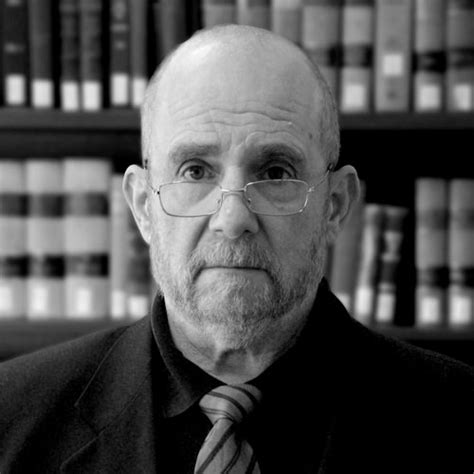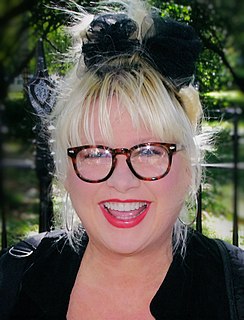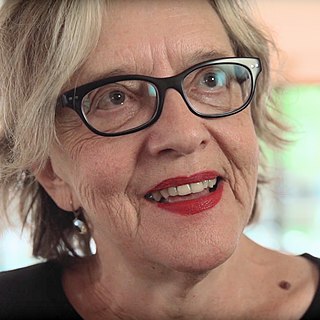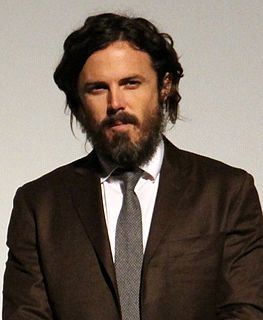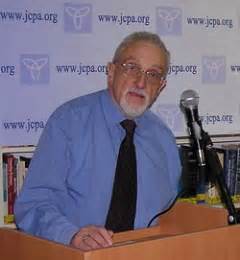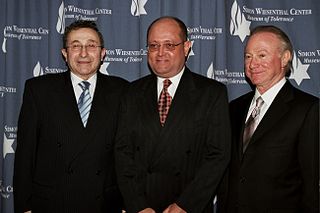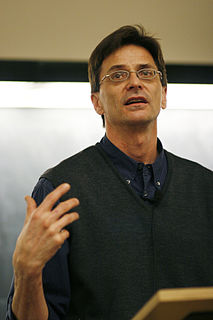Top 341 Genocide Quotes & Sayings - Page 6
Explore popular Genocide quotes.
Last updated on April 16, 2025.
I tell young people: If you make a job choice on the basis of something other than your nose or your gut, it's unlikely to work out.... It's perilous to look ahead and be like, "I'd like to be ambassador." I would never have gone to Bosnia or spent years writing about genocide. Do it on the basis of what you can learn.... It's like falling in love. Your whole dating life, you're thinking, On the one hand, on the other hand. Then you meet the right guy, and you're not in list-making mode; you're just with the person you're supposed to be with. Jobs are like that too.
There are black Christians, and black Muslims in Africa who are being slaughtered, they don't want to hear about the Jim Crow laws. There are Christians, there are other Muslims being slaughtered in the Middle East, they don't need a lecture from Obama about Christianity. The fact of the matter is Obama is not doing anything effective or substantive to stop genocide in our time.
It was measured that the splinters of the Armenian nation that had managed to miraculously escape the Genocide would not be able to recover from the blow, would disappear in the whirlpools on five continents, lose their national identity, and aptitude to be a political factor. But we, as a nation and as a state, were able to reappear at the international arena to affirm that we continue our eternal journey and that we are determined not to allow for such a crime to ever happen again.
Contemporary scholars have little explored the preconditions of genocide. Still less have they asked whether a society's weapons policy might be one of the institutional arrangements that contributes to the probability of its government engaging in some of the more extreme varieties of outrage. Though it is a long step between being disarmed and being murdered - one does not usually lead to the other - but it is nevertheless an arresting reality that not one of the principal genocides of the 20th century, and there have been dozens, has been inflicted on a population that was armed.
It would be a huge mistake to abandon democracy promotion. Peaceful political change has been enormously successful in the past years in Eastern European countries as well as in countries like South Korea, South Africa, Chile and Indonesia. However, if possible, the use of force is something to avoid except in cases where genocide is threatened, like Bosnia or Libya or with regimes that threaten our security, like the Taliban and Saddam Hussein.
When it comes to explaining human thought and behavior, the possibility that heredity plays any role at all still has the power to shock. To acknowledge human nature, many think, is to endorse racism, sexism, war, greed, genocide, nihilism, reactionary politics, and neglect of children and the disadvantaged. Any claim that the mind has an innate organization strikes people not as a hypothesis that might be incorrect but as a thought it is immoral to think.
I remain convinced that for Stalin to have complete centralized power in his hands, he found it necessary to physically destroy the second-largest Soviet republic, meaning the annihilation of the Ukrainian peasantry, Ukrainian intelligentsia, Ukrainian language, and history as understood by the people; to do away with Ukraine and things Ukrainian as such. The calculation was very simple, very primitive: no people, therefore, no separate country, and thus no problem. Such a policy is Genocide in the classic sense of the word.
Tolkien can say that Aragorn became king and reigned for a hundred years, and he was wise and good. But Tolkien doesn’t ask the question: What was Aragorn’s tax policy? Did he maintain a standing army? What did he do in times of flood and famine? And what about all these orcs? By the end of the war, Sauron is gone but all of the orcs aren’t gone – they’re in the mountains. Did Aragorn pursue a policy of systematic genocide and kill them? Even the little baby orcs, in their little orc cradles?
The Ten Commandments have been kicked out of schools. We're killing 37 hundred-something-thousand babies a day. . . . I don't know, 3,700 a day or something like that. A million a day, I don't know. I'm not good with numbers. We're killing lots of babies every day. It's infanticide. Its genocide. We are . . . How can God bless our country, seriously?
In the Goldstone Report, Israeli perpetrators of possible crimes against humanity were made subject to prosecution and punishment, although the geopolitical leverage of the United States within the UN prevents implementation. At the same time, several African leaders are being prosecuted for their crimes against humanity and participation in genocide: a double standard of sorts, given the impunity accorded to the West and Israel.
We find ourselves ethically destitute just when, for the first time, we are faced with ultimacy, the irreversible closing down of the earth's functioning in its major life systems. Our ethical traditions know how to deal with suicide, homicide and even genocide, but these traditions collapse entirely when confronted with biocide, the killing of the life systems of the earth, and geocide, the devastation of the earth itself.
People don't simply wake up one day and commit genocide. They start by setting themselves apart from others, diminishing the stature of those adhering to dissenting beliefs in small, insidious steps. They begin by saying, 'We're the righteous, and we'll tolerate those others.' And as the toleration diminishes over time, the inevitable harms are overlooked. It is for that reason that James Madison wisely wrote that 'it is proper to take alarm at the first experiment on our liberties'.
Indeed, religion allows people to imagine that their concerns are moral when they are highly immoral - that is, when pressing these concerns inflicts unnecessary and appalling suffering on innocent human beings. This explains why Christians like yourself expend more "moral" energy opposing abortion than fighting genocide. It explains why you are more concerned about human embryos than about the lifesaving promise of stem-cell research. And it explains why you can preach against condom use in sub-Saharan Africa while millions die from AIDS there each year. (25)
The importance of the term "genocide" for many Indigenous Peoples is that it is more than a term or an accusation; it is a word created in the wake of the Shoah in Europe to describe what happens when a people are targeted by a government for extermination, as were the Jews of Europe, and which is the term used in the most important international law related to concerned Indigenous Peoples, as the only international human rights law that pertains specifically to collectivities of people rather than individuals.
Some people accused me of being pro-Muslim in Bosnia, but I realised that our job is to give all sides an equal hearing, but in cases of genocide you can't just be neutral. You can't just say, 'Well, this little boy was shot in the head and killed in besieged Sarajevo and that guy over there did it, but maybe he was upset because he had an argument with his wife.' No, there is no equality there, and we had to tell the truth.
If you were to do the world championship of victimhood in modern times, then the finals would probably be between Jews and Palestinians. I think the Jews win: we, Isralians, go from the Spanish Inquisition to pogroms to the fake Protocols of the Elders of Zion to World War II and the Holocaust - it's a horrible history. And if you look at the Palestinian world, victimized by every entity in the Middle East, they were massacred in every country. I think that, in Israel, the greatest fear that people have, and I have it, too, is this fear of genocide.
The scientists who made the atomic bomb are, in my sense, people with a tragic destiny. You know, there was the US race with Nazi Germany and good evidence that the Germans were more advanced in nuclear physics, and we had to get the bomb first. But then there was the use of that dreadful weapon, or instrument of genocide, and many of the more sensitive scientists turned quickly into anti - nuclear people - and very effective ones.
We can't literally talk with everybody else on the planet or even with representatives of every group. But we can be in favor of the respectful exchange of ideas in ways that don't presuppose that all the right answers are on our own side. Still, we should all have moral bottom lines. Once genocide or torture begins the priority shifts from understanding to stopping it. One hope I have for the global conversation as instantiated in human rights treaties is that we are slowly coming to consensus on certain moral baselines.
For nearly a century, the moral relativism of science has given faith-based religion--that great engine of ignorance and bigotry--a nearly uncontested claim to being the only universal framework for moral wisdom. As a result, the most powerful societies on early spend their time debating issues like gay marriage when they should be focused on problems like nuclear proliferation, genocide, energy security, climate change, poverty, and failing schools.
We are confident that the normalization of Armenia-Turkey relations can become the greatest input of the recent decades in achieving peace and stability in the South Caucasus. With this vision, we have agreed to move forward without any preconditions, not making our relations contingent upon Turkey's recognition of the Armenian Genocide. However, if, as many suspect, it is proven that Turkey's goal is to protract, rather than to normalize relations, we will have to discontinue the process.
Anyway, what is a country? When people say, "Tell me about India," I say, "Which India?.... The land of poetry and mad rebellion? The one that produces haunting music and exquisite textiles? The one that invented the caste system and celebrates the genocide of Muslims and Sikhs and the lynching of Dalits? The country of dollar billionaires? Or the one in which 800 million live on less than half-a-dollar a day? Which India?"
Europe has another meaning for me. Every time I mention that word, I see the Bosnian family in front of me, living far away from whatever they call home and eating their own wonderful food because that's all that is left for them. The fact remains that after fifty years, it was possible to have another war in Europe; that it was possible to change borders; that genocide is still possible even today.
All cultures are different. Some commit genocide. Some are uniquely peaceful. Some have enormous hunting festivals or annual stretches when nobody speaks. Some don't use electricity. In American culture, we obsess about celebrities. We create them, build myths around them, and then hunt them and destroy them. I don't know where its taking us or what it means but I know we do it.
I have wanted to give Iraq a lesson in democracy - because we're experienced with it, you know. And, in democracy, after a hundred years, you have to let your slaves go. And, after a hundred and fifty years, you have to let your women vote. And, at the beginning of democracy, is that quite a bit of genocide and ethnic cleansing is quite okay. And that's what's going on now.
And in "Elbow Room" the cast sings the glories of westward expansion in the United States, which involved the murder of native peoples and the violent conquest of half of Mexico. Among the lines in the song is one that intones, "There were plenty of fights / To win land right / But the West was meant to be / It was our Manifest Destiny?" Let it suffice to say that happily belting out a tune in which one merrily praises genocide is always easier for those whose ancestors weren't on the receiving end of the deal.
American coffee can be a pale solution served at a temperature of 100 degrees centigrade in plastic thermos cups, usually obligatory in railroad stations for purposes of genocide, whereas coffee made with an American percolator, such as you find in private houses or in humble luncheonettes, served with eggs and bacon, is delicious, fragrant, goes down like pure spring water, and afterwards causes severe palpitations, because one cup contains more caffeine than four espressos.
Just the other day, I was in my neighborhood Starbucks, waiting for the post office to open. I was enjoying a chocolatey cafe mocha when it occurred to me that to drink a mocha is to gulp down the entire history of the New World. From the Spanish exportation of Aztec cacao, and the Dutch invention of the chemical process for making cocoa, on down to the capitalist empire of Hershey, PA, and the lifestyle marketing of Seattle's Starbucks, the modern mocha is a bittersweet concoction of imperialism, genocide, invention, and consumerism served with whipped cream on top.
There are African leaders who have the dangerous habit of leading their people into an abyss. In Rwanda we've had presidents who killed. The one million people who died here were, to a certain extent, victims of their leader, President Juvénal Habyarimana, who died in a plane crash before the genocide began. He contributed to all that. The man who took over from him was running around ordering people to kill. If this president came back and landed in my hands, I would have him arrested and tried. Unfortunately, he died a natural death.
But with dogs, we do have "bad dog." Bad dog exists. "Bad dog! Bad dog! Stole a biscuit, bad dog!" The dog is saying, "Who are you to judge me? You human beings who’ve had genocide, war against people of different creeds, colors, religions, and I stole a biscuit?! Is that a crime? People of the world!" "Well, if you put it that way, I think you’ve got a point. Have another biscuit, sorry.
The land on which they (the Founding Fathers) formed this Union was stolen. The hands with which they built this nation were enslaved. The women who birthed the citizens of the nation are second class. This is the imperfect fabric of our nation, at times we’ve torn and stained it, and at other moments, we mend and repair it. But it’s ours, all of it. The imperialism, the genocide, the slavery, also the liberation and the hope and the deeply American belief that our best days still lie ahead of us.
You see, when a nation threatens another nation the people of the latter forget their factionalism, their local antagonisms, their political differences, their suspicions of each other, their religious hostilities, and band together as one unit. Leaders know that, and that is why so many of them whip up wars during periods of national crisis, or when the people become discontented and angry. This is the explanation of all wars, all racial and religious hatreds, all massacres, and all attempts at genocide.
While many people like the idea of exercising unconditional love, most eventually find it too draining and impossible to sustain, often because the attempt to practice it is misunderstood, discouraged, brought under attack, or made a target of willful abuse. As sad as it may be to admit, in our modern world people are far more accustomed to hearing news of war, genocide, murder, disasters, famine, and disease than they are to hearing anything about acts of love or grace.
The United States was founded on the idea that all people are endowed with inalienable rights, and that principle has allowed us to work to perfect our union at home while standing as a beacon of hope to the world. Today, that principle is embodied in agreements Americans helped forge - the Universal Declaration of Human Rights, the Geneva Conventions, and treaties against torture and genocide - and it unites us with people from every country and culture.
We are in a period called post. In previous periods, anti-Semitism was always direct. Today's anti-Semitism isn't direct. If you say today that the Jews are absolute evil, or Israel is absolute evil, you must say Israeli is committing genocide against the Palestinians. It is very rare to find a Western politician who repeats these things.
Rest assured that our work is not over because our work has never been only hunting Nazi war criminals. The Simon Wiesenthal Center is an institution, a worldwide institution, engaged in combating anti-Semitism, bigotry, racism. And unfortunately, did we say goodbye to genocide after Hitler died in the bunker? No, we didn't. So in such a world, I'm afraid there will always be a need for organizations like the Simon Wiesenthal Center.
Simply put: Thanksgiving is the day when the dominant white culture (and, sadly, most of the rest of the non-white but non-indigenous population) celebrates the beginning of a genocide that was, in fact, blessed by the men we hold up as our heroic founding fathers. ...How does a country deal with the fact that some of its most revered historical figures had certain moral values and political views virtually identical to Nazis?
The great religious ages were notable for their indifference to human rights... not only for acquiescence in poverty, inequality, exploitation and oppression, but also for enthusiastic justifications for slavery, persecution, abandonment of small children, torture, and genocide... Moreover, religion enshrined hierarchy, authority, and inequality... It was the age of equality that brought about the disappearance of such religious appurtenances as the auto-da-fe and burning at the stake.
Unless people can see broad vistas of unused resources in front of them, the belief in limited resources tends to follow as a matter of course. And if the idea is accepted that the world's resources are fixed, then each person is ultimately the enemy of every other person, and each race or nation is the enemy of every other race or nation. The extreme result is tyranny, war and even genocide. Only in a universe of unlimited resources can all men be brothers.
From our best qualities come our worst. From our urge to pull together comes our tendency to tear each other apart. From our devotion to a higher good comes our propensity to the foulest atrocities. From our commitment to ideals comes our excuse to hate. Since the beginning of history, we have been blinded by evil's ability to don a selfless disguise. We have failed to see that our finest qualities often lead us to the actions we most abhor, murder, torture, genocide and war.
Who among us is not at a loss for words? Tears pour out. Tears of joy. Tears of relief. A stunning, whopping landslide of hope in a time of deep despair. In a nation that was founded on genocide and then built on the backs of slaves, it was an unexpected moment, shocking in its simplicity: Barack Obama, a good man, a black man, said he would bring change to Washington, and the majority of the country liked that idea.
If you’re too stupid to understand that a philosophy that favors a federally structured republic, with numerous restraints on the scope and power of government to interfere with individual rights or the free market, is a lot different from an ethnic-nationalist, atheistic, and socialist program of genocide and international aggression, you should use this rule of thumb: If someone isn’t advocating the murder of millions of people in gas chambers and a global Reich for the White Man you shouldn’t assume he’s a Nazi and you should know it’s pretty damn evil to call him one.



